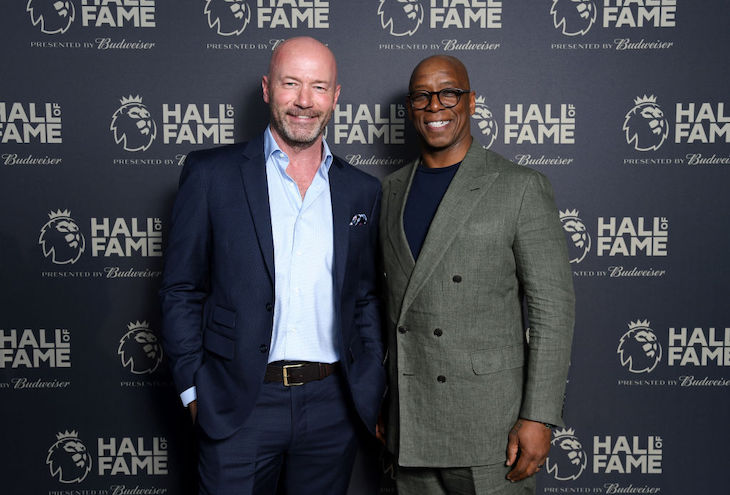I never expected staff at an entire department of the BBC to put their shoulders to the wheel of the campaign to bring about an early demise for the television licence fee. Yet that is what those working for BBC Sport have done with their rock-solid sympathy strike on behalf of Gary Lineker.
Of course, most of them probably don’t realise what they are doing. With many of the big names of BBC Sport being former professional footballers themselves, one should not expect a particularly exalted level of intellectual reasoning.
There is no way that a compulsory universal licence fee can support this level of factionalism among its prime beneficiaries
But if they help Lineker win the right to continue engaging in hyperbolic left-wing tweeting while being the BBC figure paid most loot by TV licence fee-payers, they will surely hasten the end of the compulsory fee.
BBC director general Tim Davie – effectively its editor-in-chief – has previously reminded Lineker about his responsibility not to compromise the corporation’s impartiality via his social media utterances. Lineker, by contrast, has expressed zero remorse for his latest infraction and has even pledged to carry on in the same vein. So it looks like a fight to the finish.
Let’s be clear: in his outburst over the government’s Illegal Migration Bill, the Match of the Day presenter did not merely say he was against the legislation and thought we should do better by new arrivals in the country.
He invoked bad faith and extremism on the part of those advancing or supporting the measures, branding them ‘beyond awful’ and ‘immeasurably cruel’ before even getting on to his ludicrous comparisons with 1930s Germany. This is, to use a footballing analogy (the only one this article will contain, I promise) tantamount to going in on an opponent two-footed and with studs showing.
Early polling from YouGov on Friday found that half of people support the core policy in the Bill – that anyone arriving illegally should be removed from the UK and not allowed to return, compared to 36 per cent opposing it and 14 per cent expressing no opinion.
So Lineker has branded at least half of those who fund his BBC wages via the licence fee as morally bankrupt and akin to Germans who went along with Hitler’s persecution of minorities.
There is no way that a compulsory universal licence fee can support that level of factionalism among its prime beneficiaries. As a longtime football supporter, I stopped watching Match of the Day a couple of years ago on account of its leading lights only permitting one view of the knee-taking furore: namely that anyone hostile to it must be a bigot and a racist. Again, opinion polling indicated that at least as many licence-payers opposed the gesture as supported it.
To be fair to Lineker, one can hardly argue that his insulting demeanour towards people with opposing political views is out-of-step with most of those who share his perspective. Alas, it is pretty much par for the course these days. No doubt those on the left could find many examples of right-of-centre people being equally abusive. There is a pervasive lack of respect on social media in particular.
But this is the very crux of the issue: we live in an increasingly polarised era when it comes to politics. Ideas that once commanded near-universal support, such as heightened compatriot obligation being the very basis of a nation state, are now actively and fiercely contested. In the case of the new legislation, that ferocity is even directed against the principle of it being reasonable for a nation to fend off illegal breaches of its borders.
We also have intensifying geographic and demographic-based concentrations of opinion on either side of this basic values divide. Anyone who had the pleasure of wandering round various London TV studios on June 24, 2016 (the day after the EU referendum result) as I did, would have been in no doubt about the overwhelming preponderance of distraught Remain voters to be found within the broadcast media in general.
So the defenders of Lineker’s right to be politically partial, hyperbolic and abusive are in effect arguing for those of a conservative mindset to be forced to pay the wages of someone who insults them. If Lineker gets to win his face-off with Davie then by extension this will apply to many other left-leaning BBC household names too.
Can they not see that this simply isn’t a credible way forward for a broadcaster that is supposed, in the words of its recent promo, to belong to ‘all of us’? Public support for the licence fee has fallen markedly anyway in recent years, partly as a result of arguments about bias and partly due to technological developments.
With a new funding model likely to need to be negotiated after 2027, a Lineker victory over Davie will effectively make any new stream of special government financial support for the Corporation highly unlikely. The Conservative-leaning chunk of the electorate just won’t put up with it.
In that case the corporation will simply have to compete for subscriptions or advertising revenue like all the other bog-standard broadcasters do and its pretensions to impartiality will be so much dust.
For those reasons, were I a staffer or a freelancer at BBC Sport withdrawing my labour and expressing my ‘solidarity’ with Gary Lineker, I’d still secretly be hoping for the director general’s writ to run. If it doesn’t, the BBC is going to unravel very quickly indeed.







Comments